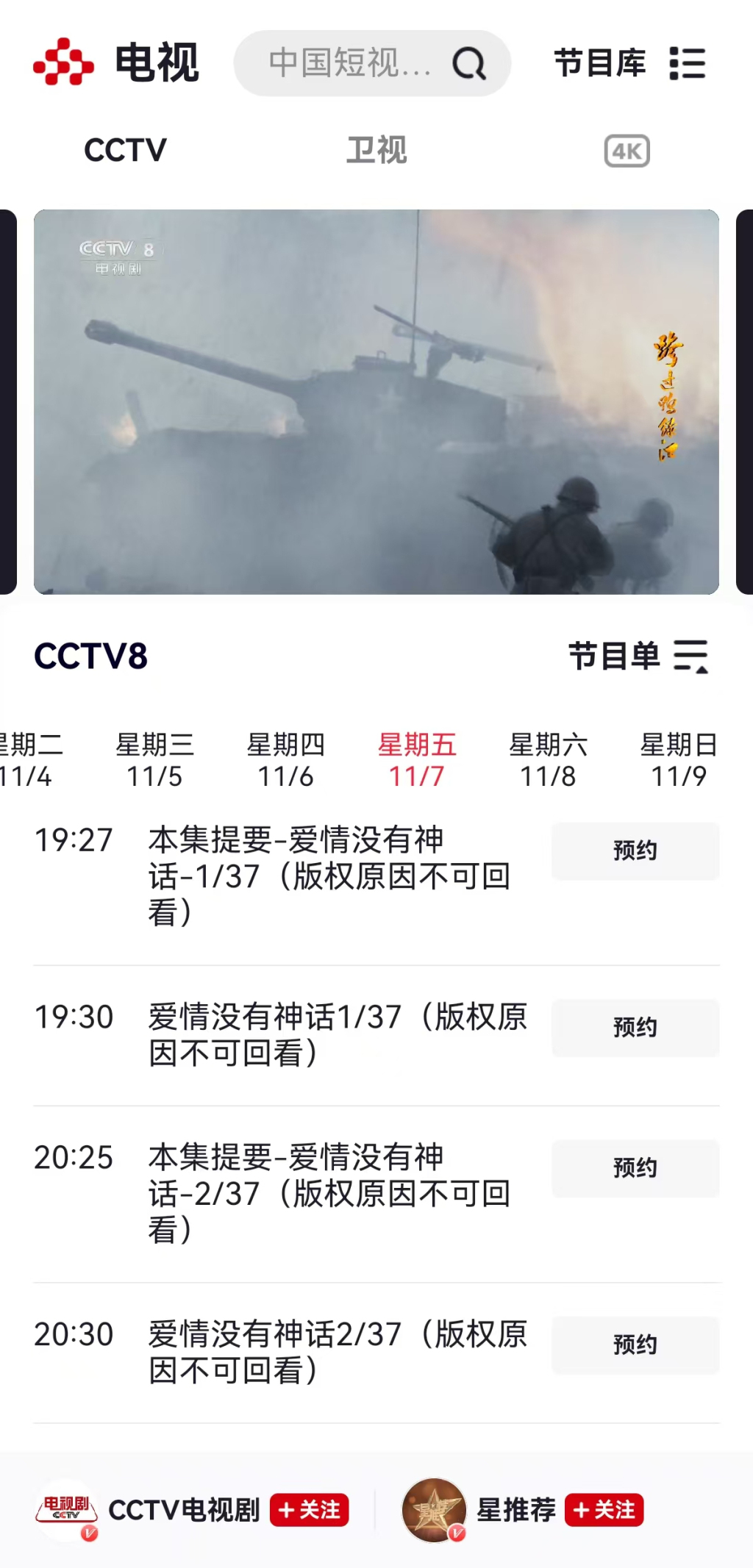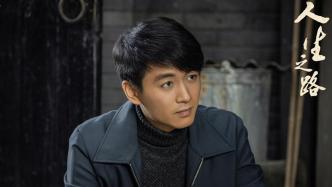
"The Road to Life" is currently on the air, and the opening title "This play is partly based on Lu Yao's novella "Life"" may be able to explain and explain to fans of the original work. In fact, after the broadcast of the play caused some discussions and controversies, many young people who had never read the original work, or only knew "Ordinary World" but not "Life", began to become "original party", which itself is worthwhile. happy thing.
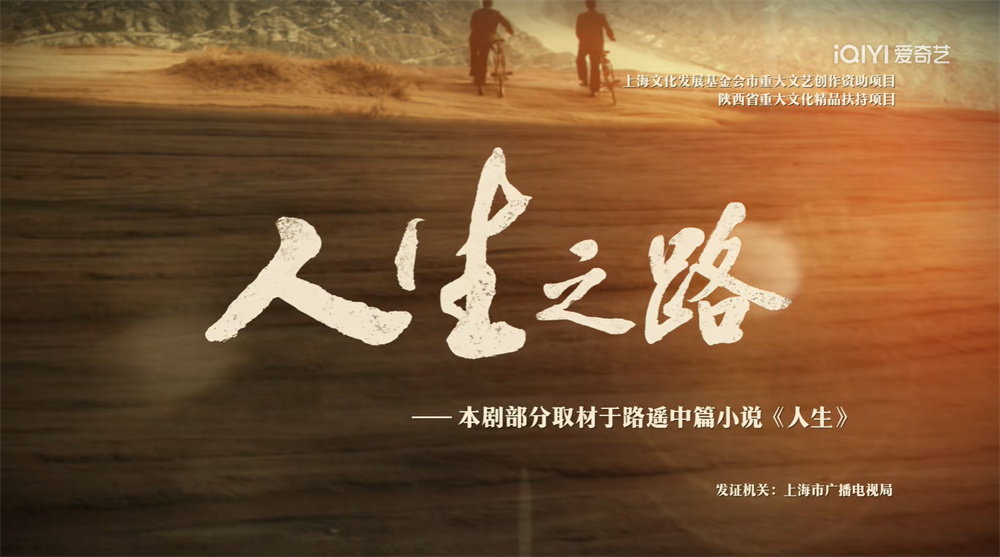
"The Road to Life"
Why do young people today still read Lu Yao's works so fondly?
It's not because he wrote the inner volume of the college entrance examination, on the contrary, it is only mentioned in the novel; nor is it because he wrote that the rural cultural people of that era (there are very few with a high school diploma) can take off their symbols freely. The long gown of identity, returning to "face the loess and back to the sky"; it is not because he wrote about the coldness of the world and the warmth and warmth of human relationships. Lu Yao is sharp, profound, and tender. Dark, and even the end of the novel will have a reversal.
We miss Lu Yao even more today because of his wonderful pen, which is not a simple and rough chicken soup that pours positive energy into people, but always faces the twists and turns of life, the tangled and troubled choices, and the gloomy things in the world. Even so, he can still Yearn for beauty, go for your dreams, and stay calm. What he is more concerned about is how the society "breaks the thieves in the mountain" and the barriers of solidified structures, and how individuals can break the thieves in their hearts and realize their dream of self-liberation. This novella is a vivid portrayal of the relationship between urban and rural areas in the early days of reform.
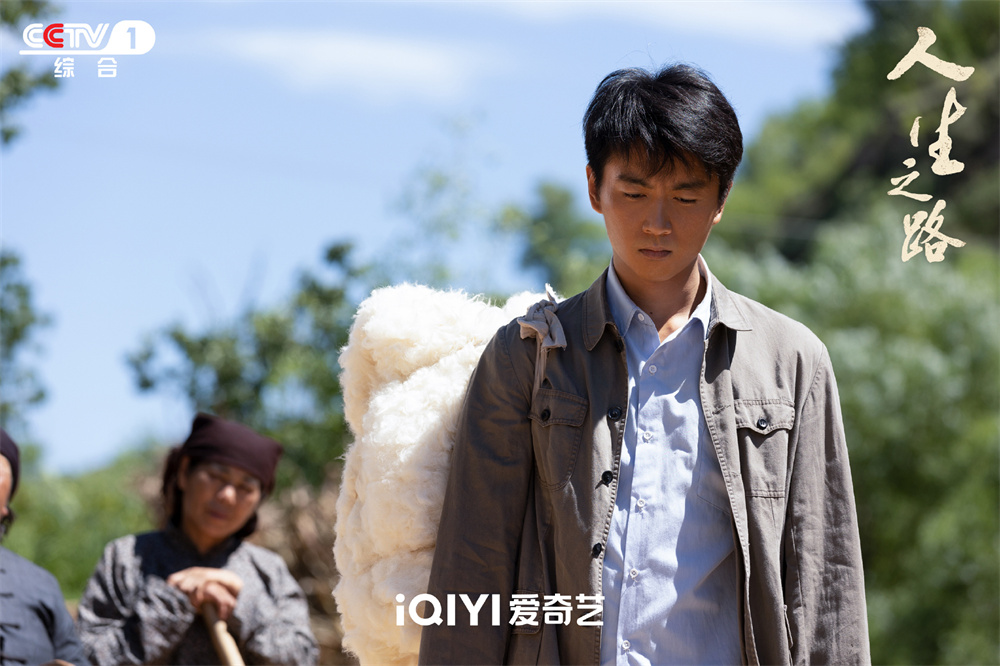
Stills of "The Road to Life"
Outlook on life: "making a fuss out of a molehill" in that era
The constant vibration, adjustment and reconstruction of the relationship between city and countryside, industry and agriculture is a common phenomenon in the historical process of modernization. In this sense, the "three rural issues" of agriculture, rural areas, and farmers are not unique to China. The enclosure movement and industrial revolution in the UK created the phenomenon of "migrant workers" in the UK and the "three rural" issues in the process of modernization in the UK, similar to the phenomenon of Polish farmers crossing borders to Germany to work in agriculture as observed by Max Weber . It's just that China's modernization process started later, the path dependence is more complicated, and the "three rural" issues last longer. This complex evolution of urban-rural relations has been particularly evident in China's reform and opening up over the past forty years. A large number of literary works have been created to reflect this process of change, and "Life" is a typical example.
In the early 1980s, a wave of reform hit our faces. This kind of collision not only directly hit the strong fortress of urban-rural relations under the traditional model, but also directly hit people's hearts, triggering many discussions about "view of life" that "made a big deal out of a molehill".
In 1980, "China Youth" published "Letter from Pan Xiao", asking "how can the road of life get narrower and narrower", and confessed his inner confusion and disillusionment to others. A popular opinion is to attribute this vigorous discussion to the social consensus of "subjectivity for oneself and objectiveness for others" as a conclusion. In fact, where is it so simple, behind it is the painful reflection of a whole generation and the reconstruction of the "Three Views". At the beginning of the reform and opening up, China as a whole faced a period of ideological vacuum after "God is dead". Filling this spiritual gap, all kinds of frosts competing for freedom, and promoting people's thoughts to softly land in a zone where they can continue to maintain their ideals and rebuild a new rationalized value system in the process of secularization and disenchantment that have already begun. period theme. Young people who are most sensitive to the changes of the times are the first to encounter this kind of spiritual and ideological shock and choice.
In 1982, Zhang Hua, a student of the Fourth Military Medical University, sacrificed his precious life by jumping into a septic tank to rescue an old farmer who accidentally fell into the tank. At the time when commodities and currencies began to play more roles in economic operations, this incident shocked people a lot, and a social discussion ensued whether it was worthwhile for "college students to save old farmers". There is no need to doubt the sincerity of people discussing such questions of value. People can accurately calculate the cost that the country pays for cultivating a college student and the contribution that a college student who "has a bright and beautiful future" can make to the country, as well as the cost that a country pays for a farmer and the future of this 70-year-old farmer. The few "residual values" of life, which is more important, seem to be clear at a glance under the framework of utilitarianism "seeking the greatest welfare for the greatest number of people". However, can the value of human beings really be compared in this way?
Also in 1982, "Life" by young writer Lu Yao was officially published. This small book with a little over 100,000 characters is a miniature version of Lu Yao's other great work "The Ordinary World", but its influence is not weaker than the latter. Take out any smartphone, use any input method, and type all the names of people in "Life", and you will be surprised to find that these characters are entered by default.
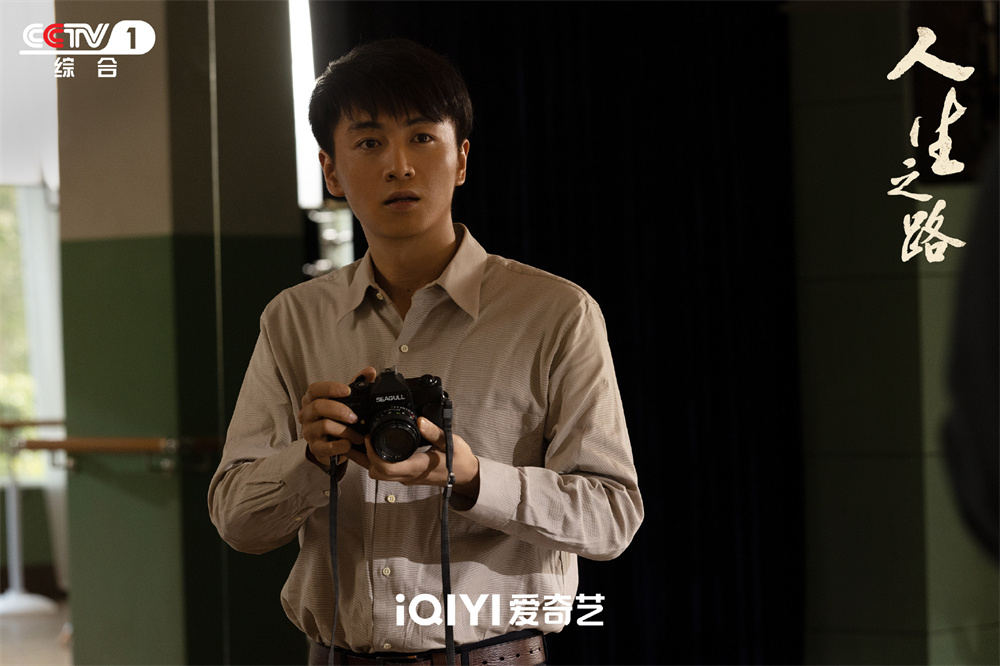
Chen Xiao as Gao Jialin
The name of the protagonist Gao Jialin comes from Lu Yao's admiration for Gagarin, the first Soviet astronaut, when he was young. The writer's own strength of lying on the Loess Plateau and looking up at the starry sky is also projected into Gao Jialin's longing and yearning for urban life. Like Pan Xiao, Gao Jialin's life is also tangled. Breaking away from the shackles of the pre-modern countryside, Gao Jialin wishfully threw himself into the embrace of the modern city, seemingly freer, but also more helpless. Gao Jialin, who entered the city, was faced with an invisible ceiling that was far more fortified than today. He encountered various obstacles and could only return to the countryside in the end.
It may be difficult for us today to understand the era background of Lu Yao’s writing. A group of people in the 1980s would actually incorporate their lives, including many personal choices, into such a big grand narrative. Lost love and unemployment turned into life and death. A big event should be crowned with a big topic like "life"! Personal love issues, marriage and family issues, and career choice issues have become the key to affecting people's life. Even, as the title page of Lu Yao's novel quotes the writer Liu Qing: "The key to life is only a few steps." Details certainly determine success or failure, but the background in which details determine success or failure is precisely the true footnote of that special historical turning point.
Going to the City VS Returning to the Country: A Rural Youth's Ideal and Reality
The time of the story in the novel is undoubtedly 1981. There are three obvious examples: one is that Gao Jialin "curled up in a long chair and watched Han Nianlong's speech at the Cambodian International Conference held by the United Nations" in the county library; It is not difficult to judge that this must have happened before the issuance of the first Agriculture No. 1 document in 1982 and the introduction of household production contracting nationwide in 1983. ;Of course, Lu Yao also explained at the end of the novel that "the first draft was in Ganquan, northern Shaanxi in the summer of 1981".
The reform started in the countryside, and for six or seven consecutive years, the income gap between urban and rural areas has been narrowed. After the contracting of production to households, township enterprises and county economies also sprang up, and the countryside showed signs of vigorous development. Farmers' incomes increased, and farmers who were good at doing business quickly developed. Along the route that the countryside surrounds the cities, from the countryside and agriculture outside the (planned economy) system to the fortresses within the (planned economy) system—cities and industries. After several rounds of national economic adjustments, the city's driving force for rural employment and economy has declined, and in fact it has entered a stage of separate development between urban and rural areas. Before the urban unit system and the rural commune system collapsed, rural teacher jobs became more expensive. It was a world of "commodity food". Therefore, whether Gao Jialin, who failed the college entrance examination, can obtain the status of a rural teacher is actually very critical.
The rural politics that Gao Jialin faced was the political and business alliance between Gao Minglou, a strong man in rural politics, and Liu Liben, a capable man in the village who got rich first through business. The two were married. This is also the village ruled by strong people and able people who gradually emerged after the reform. A person with great ability is an official, and a person with two abilities is a businessman. In the collision of the old and new economic management systems, a domineering village official like Gao Minglou was born. If Gao Jialin wants to live for others to see, he must forget his original intention and be extremely embarrassed. The intellectual young people want to go back to the city, it may just be a kind of incompatibility, even if they dislike it, it is also a dislike from outsiders. But Gao Jialin is born and bred and dislikes it, or maybe he just yearns for the city more. It's just that this kind of dislike made him feel like a fool, so he chose to reject Qiaozhen in order to completely escape from the farm.
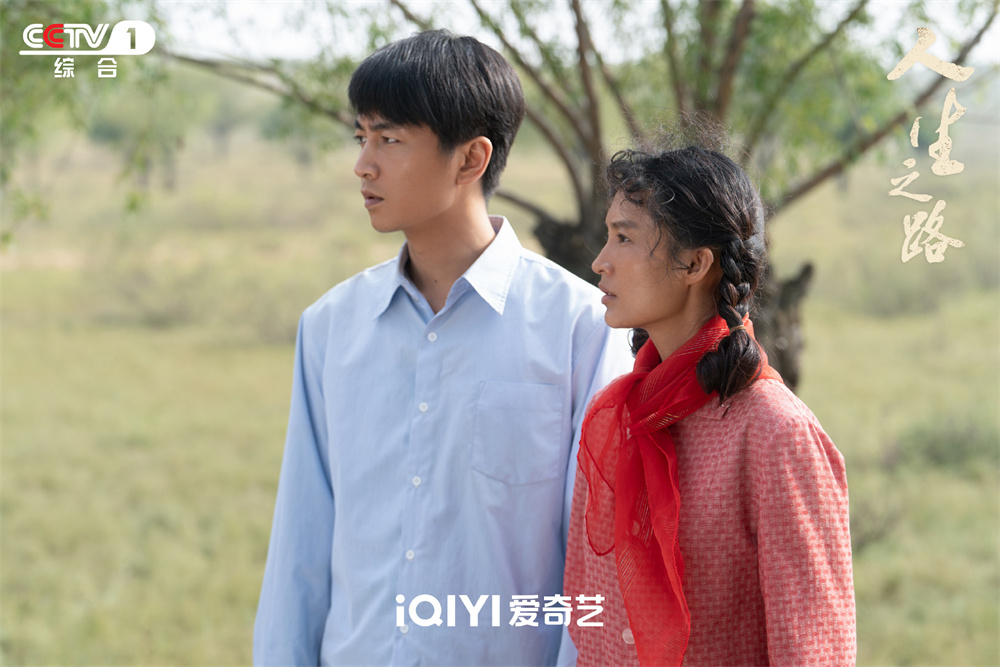
Stills of "The Road to Life"
The love story in "Life" is more like the 1980s version of today's so-called "Phoenix Man" model. The evil consequence of being well-matched to the planned economy is that the class solidification is more serious. In this sense, Simmel's judgment in "Philosophy of Money" is profound: money is the first egalitarian. It whizzed over with an aura that swept away everything, and it also made all solid things disappear into thin air. In an era of transformation, the conflict between the two values pervades every aspect, and because of this, there will be fierce entanglements and conflicts; it is also because of this that there is a true conscience.
Qiaozhen has never been educated, but she likes educated people. Isn't this a kind of spiritual pursuit? She is not without a philosophy of life, she is an open-minded person with capital letters. Every time you read about her, you are always full of sympathy at first, but in the end you will find that she is much stronger than you imagined. In many places in the text, Lu Yao adopts the method of wanting to promote before suppressing. For Qiaoling, Gao Minglou, etc., these characters have a deeper ambush, including Liu Liben's father, who is more broad-minded than Huang Yaping's father. What is life? These fragments seem small, but they can see the big, the spirit, and the life in the small, which is why this novel that seems to be about love is so touching. People who are broken in love often talk about death, and both Qiaozhen and Zhang Henan have thought of death. At first glance, it is difficult to understand, how can love be equal to life? In fact, it is the process of love and the various hard social relationships involved and the solidified urban-rural dual social structure, so it is a condensed life.
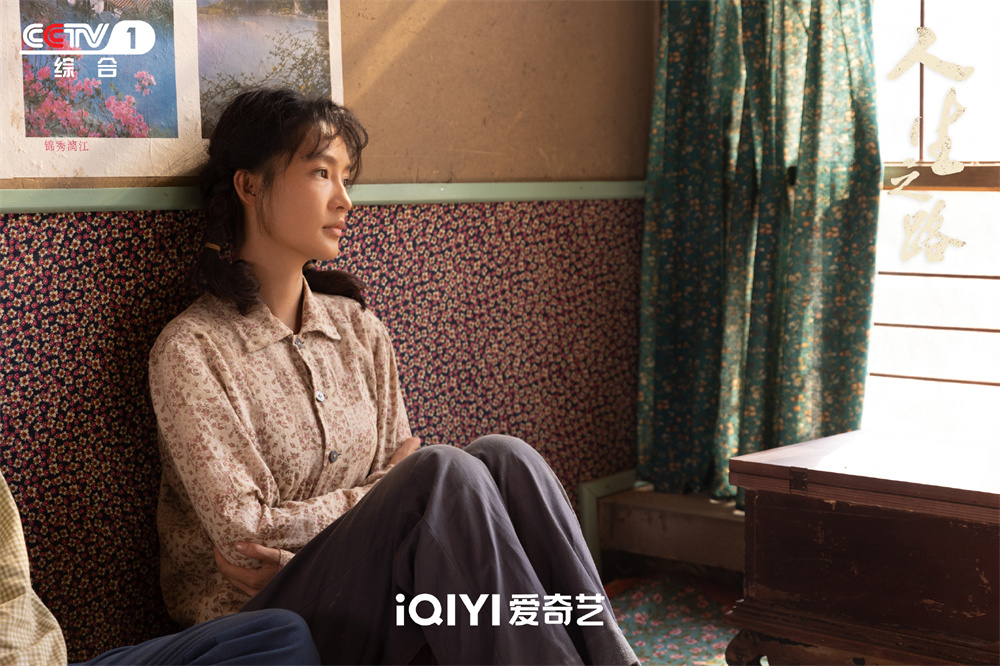
Li Qin as Liu Qiaozhen
The urban routine is deep, and Gao Jialin wants to return to the countryside. The city is folded, and the space is separated. The countryside is still that simple and transparent community. At the end of the novel, Gao Jialin's urban household registration was revoked, and he lost all hope. When he returned to the countryside, he saw all the people who still treated him warmly. The closing sentence of the novel is: "At last, he threw himself on the ground". The author projected his hope to the rural countryside, causing Gao Jialin to fall to the ground, just as the giant Antai must be "grounded".
I read this novel for the first time more than ten years ago. When I saw this text with a strong sense of imagery, I thought of Guo Moruo's "Under the Leifeng Pagoda" in the 1920s. He saw an old farmer under the Leifeng Pagoda. In his poem, he wrote the following words: "I want to kneel in front of him and call him my father! Lick the yellow mud off his feet." Even with that The ideological trend of "sanctity of labor" in the era is consistent, but the words are exaggerated. In comparison, Lu Yao seems to handle it better. Gao Jialin's action was natural and sincere. There are so many people in this hometown where he was born and raised, no one is sorry for him. After offending so many people, when he returned to the countryside, no one, including Gao Minglou and Liu Liben, pushed him away. Instead, they were all careful to prevent him from misunderstanding, and they all defended him, creating an accepting environment for him. Reintegrate into this acquaintance society. Gao Jialin's "thumping" instead of "kneeling" just "thumped" out of his true feelings for the countryside.
Through this change of Gao Jialin, Lu Yao's praise of the countryside is relatively natural, without a sense of suspension. Moreover, this kind of eulogy does not contradict Gao Jialin's previous eulogy of the city. As mentioned earlier, Gao Jialin originated from "Gagalin". Human yearning for the vast starry sky is the same as Gao Jialin's yearning for city life. There is a famous saying in the Middle Ages that the air in a city is free. The question is, what will happen after Nora leaves? Gao Jialin, who entered the city, was still facing the invisible ceiling with layers of fortified barriers, and encountered various obstacles. He went around the city, but really couldn't stay any longer, so he had to go back to the countryside. Lu Yao arranged for him a better step, an exit method that everyone could accept.
The rural youth who failed to go to the city and then returned to their hometown, and the urban educated youth who failed to go to the countryside and then returned to the city, just formed a duality in the matrix. Pinning hope on the rural fields, this optimistic idyllic imaginary picture is understandable. However, we should ask further questions today. It is also a simple solution to seek out the wilderness. It is not necessarily realistic or humane to introduce the huge waves caused by historical turning points and social changes into the countryside, and to use the countryside as a buffer and filter valve for crises. This is an unbearable pressure on the countryside, and it cannot bear such a heavy responsibility.
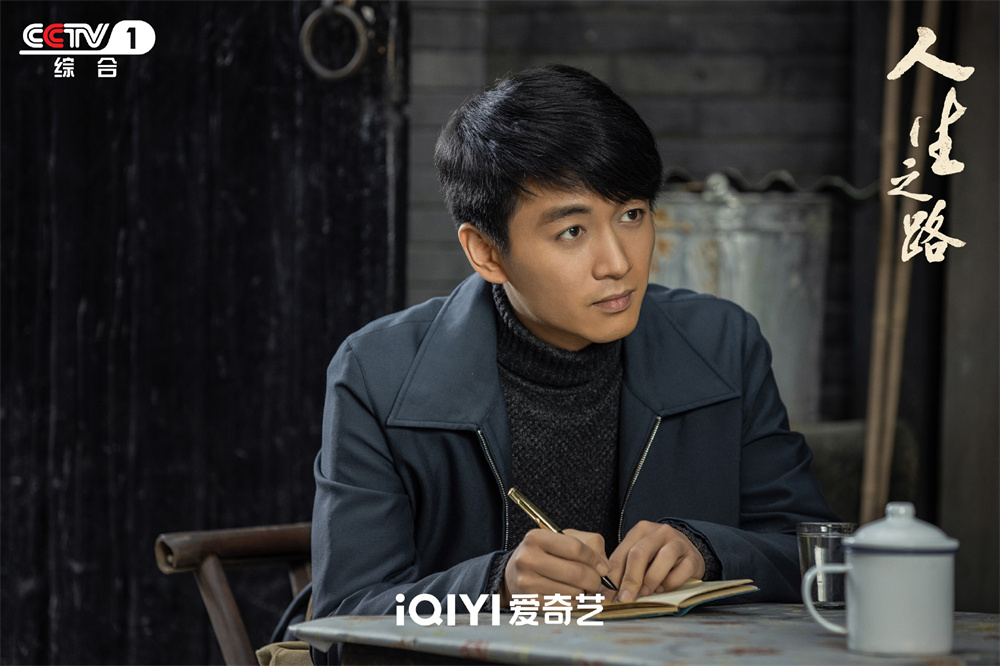
Stills of "The Road to Life"
Urban-Rural Divide: A Kind of "Evil" in the Sense of Historical Philosophy
In the whole book, only Grandpa Deshun is the one who truly bears the light of "I" humanity and the role of life mentor. When they entered the city together earlier, when the old man in Deshun looked back on his love, he said a sentence that moved all of us: "I can't die, but she will live! She will be in my heart for the rest of my life." The purpose of the old man Deshun's testimony is to tell Gao Jialin to follow his inner calling, seize the opportunity, and make a choice. This is really a representative of "the poor and the humble are the noblest". This also echoes the final ending. When Gao Jialin came back and lost his mind, it was the old man Deshun who came to "call the soul" to give him enlightenment and motivation for life. An uneducated person, on the contrary, gave such a wonderful life lesson to a "literate person". The old man in Deshun can be said to have witnessed and witnessed Gao Jialin's whole process from falling in love (he was the first person to discover their relationship) to breaking up, and he sincerely wanted to facilitate them.
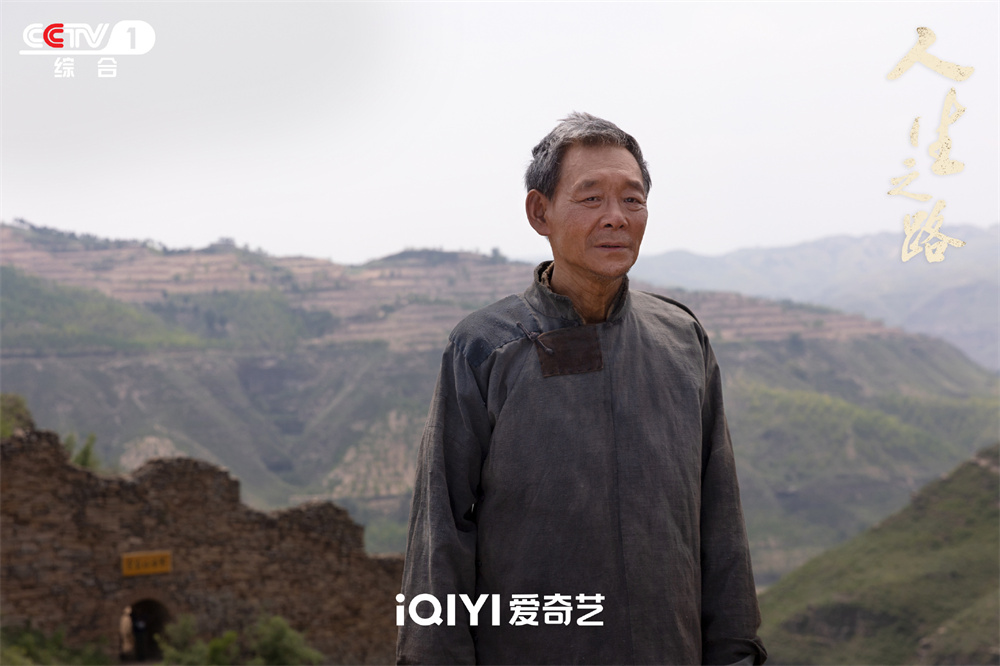
Li Guangfu as Grandpa Deshun
Qiaozhen's father, Liu Liben, said that "high school students are useless, but if they are not good at writing, they can't be good at martial arts." Gao Jialin's father, Gao Mingde, also doubted whether knowledge can change one's destiny. What is knowledge and what is culture? The cultural people we understand seem to be literate and have a certain degree of education. The two paragraphs of Xintianyou in the novel are Lu Yao deliberately subverting this common sense. When Qiaozhen first fell in love, Grandpa Deshun sang a passage, which showed a kind of pure heart. From this, we can see that although the old man in Deshun has no education, it does not mean that he has no spiritual pursuit. And Gao Jialin was "beaten back to his original shape" and returned home again. The simple child sang a passage from Xin Tianyou to teach him: "Brother, you are not a talent, you sold your conscience to come back." It is even more ironic. As the "Tao Te Ching" said: "The more you learn, the more you lose the way. The more you lose, the more you do nothing." That is to say, the more knowledge you have, the more retrogressive your understanding of morality will be. It is not as good as a little child. Of course, knowledge and morality are not necessarily in an inversely proportional relationship. The meaning of this sentence is just a kind of vigilance: while improving your knowledge and cultural level, don't lose your original intention.

Liu Wei as Liu Liben
Although this book is short in length, it condenses various elements involved in a person's life in the main love story, focusing and burning in a short period of time, which is the charm of the novel. Now when we read this book, we will have great feelings, but the scenes in the novel are difficult to reproduce in contemporary times. Today we lose our jobs and break up, so we don’t have to suffer from setbacks in our lives and feel like we’re going to die. It’s not that serious to feel that the hope of life has been shattered. Today's urban-rural mobility is also freer than that of those days, and there are not as many restrictions as in the early days of the reform (what do you mean by eating commodity grain? It means that you have to have food stamps if you leave the land! Otherwise, it will be difficult to move a single step). This is a manifestation of social progress. But today we can still feel some other invisible pressure, which is in line with the theme of the novel, that is, class solidification.
In the 1980s, people had an expectation and vision that they could learn knowledge and change their destiny through personal efforts. Gao Jialin is a complete farmer's son, but he has full confidence. He feels that a high school graduate is qualified to live in the city. This is a commendable kind of courage, and it is also a kind of self-confidence that is scarce today. Few college graduates can confidently believe that with a college degree, they can gain a firm foothold in a big city. What is even rarer in this era is Gao Jialin's "liberation through knowledge" (Popper's language) at that time, relying on the background brought to him by knowledge, daring to pursue a happy life, and having as much courage as the heart, the stage has as much courage.
Gao Jialin is not pursuing high society like Balzac, he just yearns for a more diverse way of life and more free choices in a long-term suppressed environment. Today's youth encounter new "folding", "chain of contempt" and "involution". The depressive feeling caused by this artificial division is not necessarily weaker than the urban-rural division in Gao Jialin's era. This is an important reason for the sense of time travel and substitution that we have when reading "Life" today. A noble son from a poor family can only be solved by one generation, and the "fighting in the arena" is not over yet. A person like Gao Jialin has become an urbanite through his own efforts, but his next generation is still facing a fierce "educational arms race" that is "armed to the teeth", and going to the city is only to relieve his pressure a little. The key behind the poor family problem is its unsustainability. The body enters the city, the soul leaves the body, and it will continue to face the paradox of "siege".
Lu Yao's writing is indeed very clean. One is due to the reasons of the times: there were few messy things at that time. This is not an endorsement for a certain era, but an objective statement. That is a relatively shy and pure stage of a person; the other On the one hand, Lu Yao's writing style is really clean, subtle but not revealing, resentful but not angry: You see when he describes the love scene, like the part where Gao Jialin and Qiaozhen get along alone, one walks in front and the other walks behind, then It is the picture of pure love between boys and girls; at the same time, Lu Yao's words are very suitable for reading, with a natural sense of language, as if he is talking to you face to face.
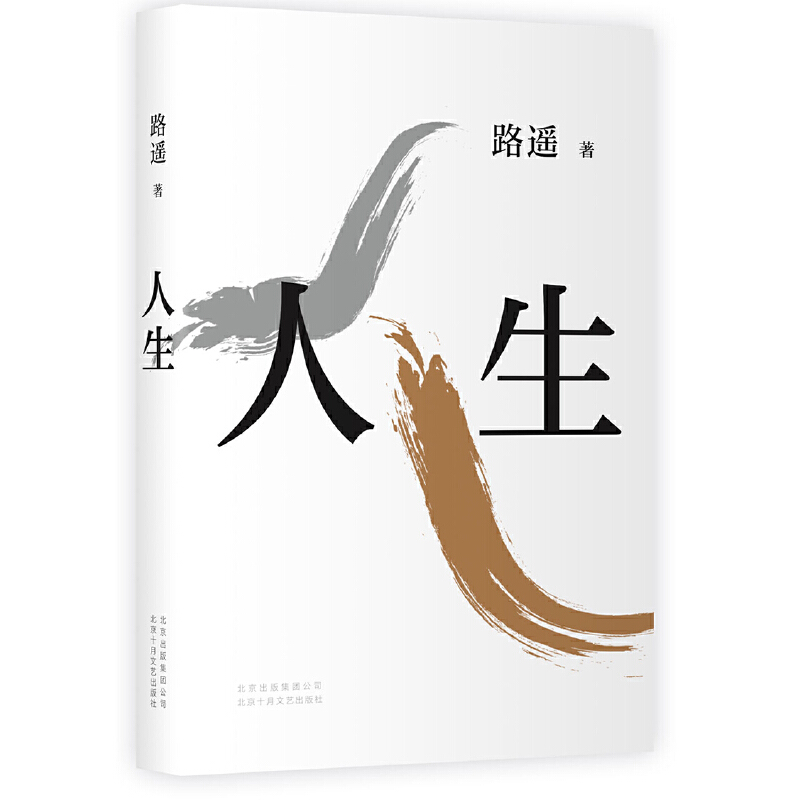
"Life" book video
The fact that Life's story still resonates today shows that it hits the nail on the head. Lu Yao wrote about the rural people who were born and raised in the countryside who wanted to go to the city, while Liang Xiaosheng wrote about the educated youth who came from the city and wanted to return to the city. That is also a life choice: after working in the Great Northern Wilderness for many years, it is very difficult to leave suddenly. How to evaluate this choice? From what point of view to evaluate this choice? Kant has a famous sentence about the philosophy of history: "The history of nature begins with good, because it is the creation of God; the history of freedom begins with evil, because it is the creation of man." This evil is the philosophy of history. Evil in this sense cannot be simply denounced as "chaos at the beginning and abandonment at the end". It more reflects the constraints of an external environment, and it is difficult to pursue responsibility on a purely personal moral level. The educated youth who went to the countryside in the era of separation between urban and rural areas could not expect the "spring thunder in October", the resumption of the college entrance examination, large-scale return to the city, Zhuge Liang's harsh criticism of "debt" after the fact, and the requirement for a complete life plan is too much. "Foreign guests". Therefore, we also regard Gao Jialin who is entangled everywhere in "Life" as the same view, and focus the discussion on the character of the so-called "scumbag", just ignoring the urban-rural relationship and its institutional dilemma at the turning point of history. A more important question.
"Life" is never out of date. Each generation has its own mission, and everyone has their own life. Life goes on, and the confusion of life will continue to emerge. But as long as we keep questioning the meaning of life, we will not follow the trend, and we will always be able to create a unique and wonderful life for ourselves.


